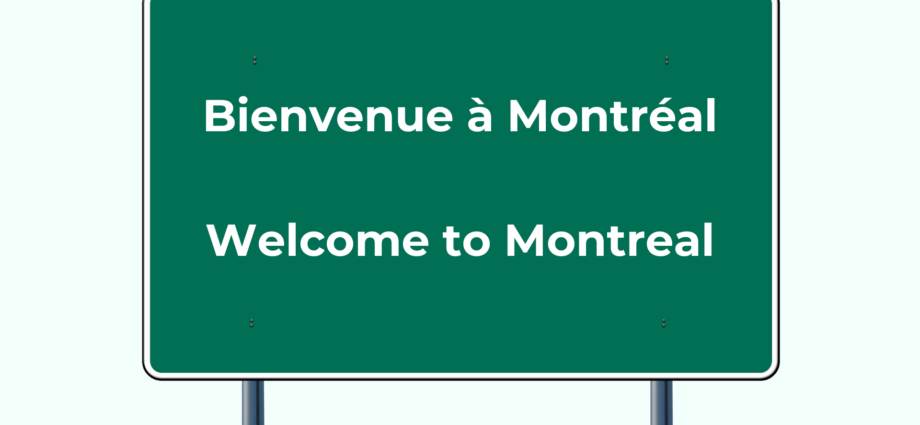
October 29, 2024
Historically, Montreal has stood as a beacon of multiculturalism and inclusivity, but recent decisions at City Hall threaten to undermine that legacy. In a move touted as a stand for secularism, Montreal Mayor Valérie Plante announced that a welcome sign featuring a woman in a hijab would be removed from a city hall lobby. Speaking on a talk show on Sunday, October 28, 2024, Plante explained that the image would be taken down due to the “discomfort” it reportedly caused, emphasizing that city institutions must uphold a neutral, secular stance. This decision signals a troubling shift in Quebec’s approach to diversity, sending an unsettling message to Muslims across the province.
Quebec’s secularism debate has long simmered, boiling over with legislation like Bill 21, which restricts public sector employees from wearing religious symbols. Now, Montreal’s City Hall drawing, intended to welcome people from all backgrounds, has ignited further tensions. This illustration, featuring a woman in a hijab standing alongside a teenager in casual wear and an older gentleman, was meant to reflect Montreal’s diverse social fabric. However, it will now be taken down in the name of secularism, highlighting a deep-rooted intolerance for visible expressions of Muslim identity.
By stripping down its welcome image, Montreal risks stripping down the rights of its Muslim citizens, particularly women who choose to wear the hijab. Muslim women are integral to Quebec society; they are our teachers, doctors, and neighbors. They contribute to the community, hold jobs, pay taxes, and enrich the cultural wealth of the province. Yet, actions like these send a clear message: they are unwelcome in public life unless they conform to secularist expectations — a stance that is, in reality, hypocritical to the ideals of inclusivity and equality.
Freedom of Religion or State-Sanctioned Intolerance?
Advocates of Quebec’s secularist push argue that religious symbols infringe upon the state’s neutrality. Yet, neutrality doesn’t require erasure; it demands fairness and equality. A government that prides itself on equality should not silence or marginalize one group to validate another.
Bill 21, along with this recent decision to remove an inclusive illustration, has led to the exclusion, discrimination, and marginalization of Muslim women in Quebec. Harassment cases have surged, job opportunities are dwindling, and young girls have even been barred from activities, as seen in the case of a girl turned away from a Montreal karate class for wearing a hijab, despite the fact that many karate institutions recognize and permit head coverings. This is not equality; it is institutionalized discrimination.
Misplaced Priorities: Quebec’s Political Obsession with “Secularism” Over Real Issues
As Quebec’s government and elites obsess over “protecting” public spaces from visible religious expression, they are losing sight of pressing issues — affordable housing, healthcare system crises, and the escalating cost of living. Instead of strengthening Quebec, they are leading it towards division. By prioritizing symbolic moves against religious expression, they alienate their own citizens, sacrificing social cohesion on the altar of an exclusionary brand of secularism.
As Montreal moves to replace the inclusive image, the larger impact of such policies cannot be ignored. They erode Quebec’s pluralistic fabric, making life harder for Muslims in general, particularly for Muslim hijab-wearing women. Quebec politicians, like PQ Leader Paul St-Pierre Plamondon, are sparking Islamophobia with recent actions, such as his condemnation of a library ad featuring a hijab-wearing child, which signals ongoing hostility toward Muslim identity, especially for Muslim women.
A Call for Change
Quebec politicians and leaders must reconsider their trajectory. Diversity should not be a threat; it should be embraced as a strength. The world is watching as Quebec, once seen as a forward-thinking province, grapples with this growing backlash. If its leaders do not act, Quebec risks becoming an outlier, known not for its tolerance and inclusivity, but for its discriminatory secularism.
Montreal, and Quebec at large, must decide: do they want a society that celebrates diversity or one that suppresses it? The choice to dismantle the City Hall’s welcoming image is more than just an illustration — it’s a declaration of exclusion. Montreal and Quebec can and must do better to reflect and respect all their people.
Subscribe to our newsletter.


